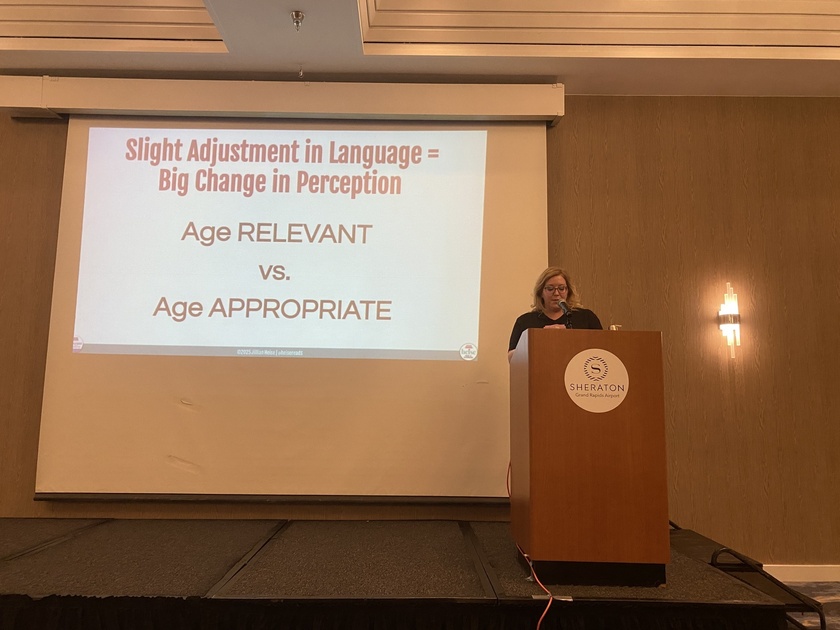Support my independent journalism for just $5 monthly and access exclusive content. Your subscription helps keep these vital stories available to all. Cancel anytime. Thank you to our current subscribers for your ongoing support! Join us in bringing light to untold stories.


LANSING, Mich - When snowbirds return to their homes, they may find that someone has moved in without permission during their absence, an act known as “squatting.” At least two states are considering new laws to combat the practice, and a Republican lawmaker from Gaylord has introduced legislation aimed at making it easier for property owners to evict squatters.
House Bill 5634 would establish a form property owners could use to request the county sheriff’s office “to immediately remove the person or persons from the property.” The property owner would have to affirm several statements. These include “I am the owner of the real property or the authorized agent of the owner of the described real property” and “I have directed the person or persons to leave the property, but they have not done so.” The person who includes false statements on the form would be liable for those statements. Click here to read more.

PITTSBURGH, PA - Here’s a statistic that, if you have a job in corporate America, may be the single least surprising piece of information you’ll hear all year.
It turns out that every single one of the Fortune 100 companies — 100% of them — has made a public commitment to DEI on their website. There isn’t a single outlier in the top 100 companies in this country. Chris Rufo looked into this, and he found that they all have a stock DEI page. Whether you go to Amazon or Target or Dell or Verizon or Home Depot, or banks or insurance companies or anywhere else, you’ll find the same platitudes — boilerplate about the importance of the alphabet people, parental leave for birthing folks, outreach to historically black colleges, and so on.
This total uniformity took hold relatively quickly, within just the last few years. Publicly, the explanation for this change is that all of these companies are suddenly very concerned about racial justice. They’re upset about George Floyd and so on. But privately, there’s another very clear reason for it. The leadership of all of these companies understand very well that if they stop practicing DEI — if they, say, start hiring all of their employees based on merit instead of skin color — then the federal government will try to destroy them. Click here to read more.

WASHINGTON D.C. - After six months of internalizing a soft landing for the economy, investors have stomached the reality that a bipartisan addiction to federal spending is undermining the Federal Reserve’s war on inflation.
With headline consumer price index inflation, wholesale inflation, and the consumption expenditures price index all back on the rise, Treasury futures now predict a majority chance of just three cuts to the federal funds rate this year. More shockingly, the data show there is a 1-in-9 chance the Fed will not deliver a single rate cut by the end of 2024. Click here to read more.

BOSTON, MASS - The late Sen. Gaylord Nelson (D-WI), a fierce environmentalist and the founder of Earth Day, championed reducing overall immigration to the United States to protect America’s wildlife sanctuaries, farmland, and quality of life.
While a Senator, Nelson founded Earth Day on April 22, 1970, to advocate for the conservation of the environment in the United States. Today, Earth Day is celebrated across the globe. Nelson, a left-wing Democrat who also served as governor of Wisconsin before being elected to the Senate, was a champion for eliminating illegal immigration to the United States as well as reducing legal immigration levels. Click here to read more.

PHILADELPHIA, PA - At the Richboro Taco Bell, outside of Philadelphia, manager Becky Arbaugh wasn’t working the lunch rush, but was around nevertheless.
She heard a scream coming from the drive-through window, followed by the harrowing words ‘call 911 the baby isn’t breathing!'”
The phone would have to wait, as Arbaugh threw off her headset and rushed to see the situation. Just outside the drive-through window, she saw Natasha Long holding the lifeless blue body of her 11-week-old son Myles.
“The mom was panicked,” Arbaugh told Good Morning America. “I told her to give him to me and I performed CPR. I was trying to calm her down and comfort her and reassure her that he will be fine.” Click here to read more.
























